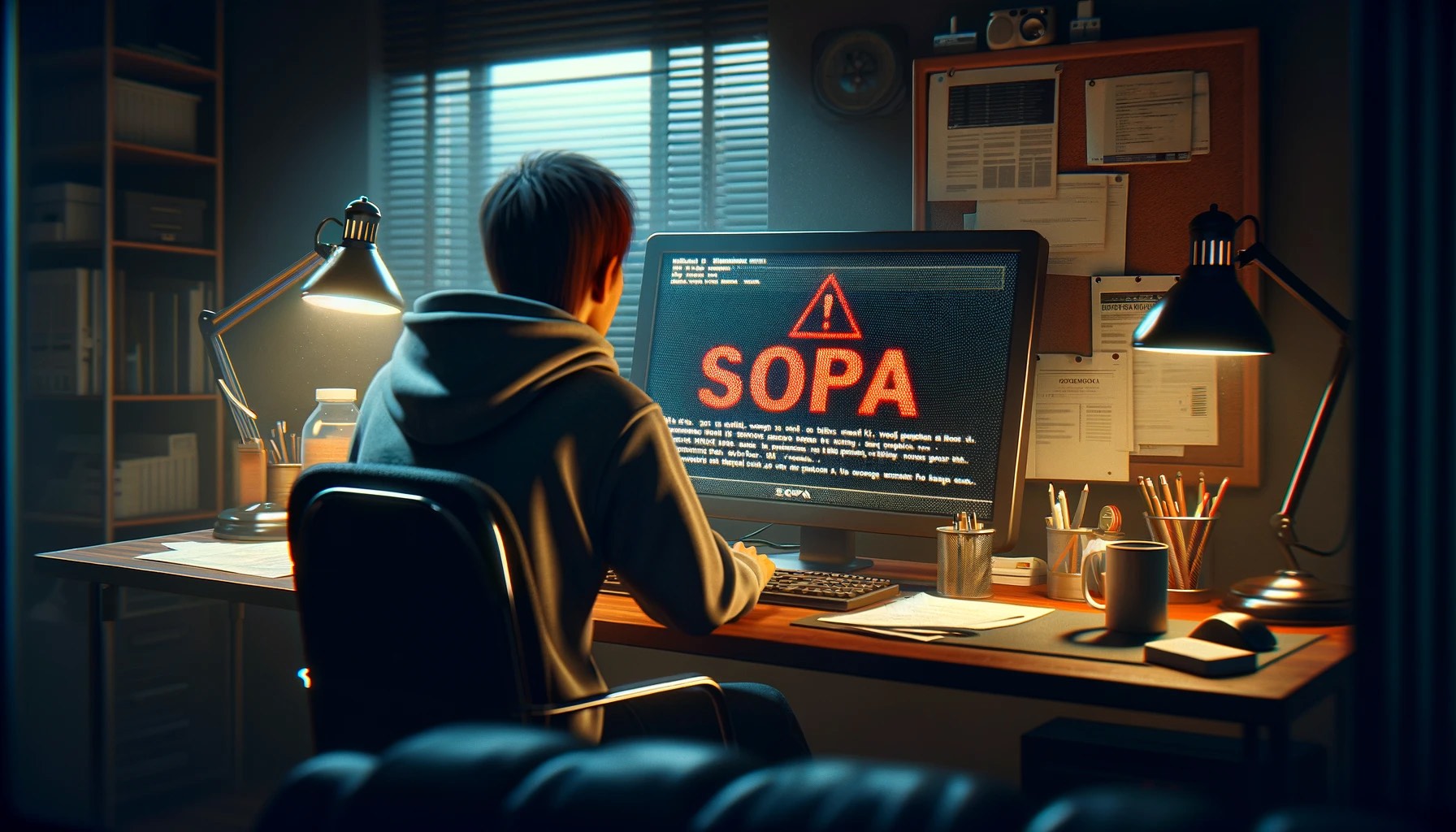
What is the Stop Online Piracy Act (SOPA)? SOPA, short for Stop Online Piracy Act, was a controversial bill introduced in the U.S. House of Representatives in 2011. Its main goal was to combat online piracy by allowing the government and copyright holders to take legal action against websites accused of enabling or facilitating copyright infringement. Critics argued that SOPA threatened free speech, innovation, and the very structure of the internet. Supporters claimed it was necessary to protect intellectual property and jobs. The bill sparked widespread protests, including a massive internet blackout, leading to its eventual shelving. Understanding SOPA is crucial for grasping the ongoing debates about internet freedom and copyright laws.
Key Takeaways:
- SOPA was a controversial bill aimed at fighting online piracy, but it faced strong opposition from major tech companies and internet users, leading to its ultimate shelving.
- The internet blackout protest, with major websites like Wikipedia participating, played a significant role in raising awareness and ultimately stopping the progress of SOPA.
What is SOPA?
The Stop Online Piracy Act (SOPA) was a controversial bill introduced in the United States House of Representatives. It aimed to combat online piracy and protect intellectual property rights. However, it sparked significant debate and opposition.
- SOPA was introduced by Representative Lamar Smith on October 26, 2011.
- The bill sought to expand the ability of U.S. law enforcement to combat online trafficking in copyrighted intellectual property and counterfeit goods.
- SOPA targeted websites that hosted or facilitated access to infringing content, even if they were based outside the United States.
Key Provisions of SOPA
SOPA contained several provisions that were designed to curb online piracy. These measures were seen as both necessary by supporters and draconian by opponents.
- One provision allowed the Department of Justice to seek court orders against websites accused of enabling or facilitating copyright infringement.
- Another provision required internet service providers (ISPs) to block access to infringing websites.
- Search engines would have been required to remove links to offending sites.
- Payment processors and advertising networks would have been prohibited from doing business with infringing websites.
Supporters of SOPA
Many organizations and individuals supported SOPA, believing it was essential to protect intellectual property and combat piracy.
- The Motion Picture Association of America (MPAA) was a strong supporter of SOPA.
- The Recording Industry Association of America (RIAA) also backed the bill.
- Various companies in the entertainment industry, including major film studios and record labels, supported SOPA.
Opposition to SOPA
SOPA faced significant opposition from various groups who believed it threatened internet freedom and innovation.
- Major technology companies like Google, Facebook, and Twitter opposed SOPA.
- Civil liberties organizations, including the Electronic Frontier Foundation (EFF), were vocal critics of the bill.
- Many internet users and activists argued that SOPA would lead to censorship and stifle free speech.
The Blackout Protest
One of the most notable events in the fight against SOPA was the internet blackout protest, which demonstrated the widespread opposition to the bill.
- On January 18, 2012, several major websites, including Wikipedia and Reddit, participated in a blackout protest.
- Wikipedia went dark for 24 hours, displaying a message urging users to oppose SOPA.
- The blackout protest generated significant media coverage and increased public awareness of the bill.
The Aftermath of SOPA
The backlash against SOPA had a profound impact on the bill's progress and the broader conversation about internet regulation.
- Following the blackout protest, several lawmakers withdrew their support for SOPA.
- On January 20, 2012, Representative Lamar Smith announced that he would postpone further consideration of the bill.
- SOPA was ultimately shelved, but the debate over online piracy and internet regulation continues to this day.
The Impact of SOPA
SOPA aimed to combat online piracy but sparked a massive debate about internet freedom. Critics argued it threatened free speech and innovation, while supporters believed it was necessary to protect intellectual property. The backlash led to widespread protests, with major websites like Wikipedia and Reddit going dark in opposition.
Ultimately, SOPA was shelved, but the conversation it started continues. The balance between protecting creators' rights and maintaining an open internet remains a hot topic. Understanding SOPA's history helps us navigate future discussions about digital rights and regulations.
Staying informed about these issues is crucial. They shape how we use and interact with the internet daily. SOPA's legacy reminds us that our voices matter in shaping the digital landscape. Keep learning, stay engaged, and remember the power of collective action in defending internet freedom.
Frequently Asked Questions
Was this page helpful?
Our commitment to delivering trustworthy and engaging content is at the heart of what we do. Each fact on our site is contributed by real users like you, bringing a wealth of diverse insights and information. To ensure the highest standards of accuracy and reliability, our dedicated editors meticulously review each submission. This process guarantees that the facts we share are not only fascinating but also credible. Trust in our commitment to quality and authenticity as you explore and learn with us.


